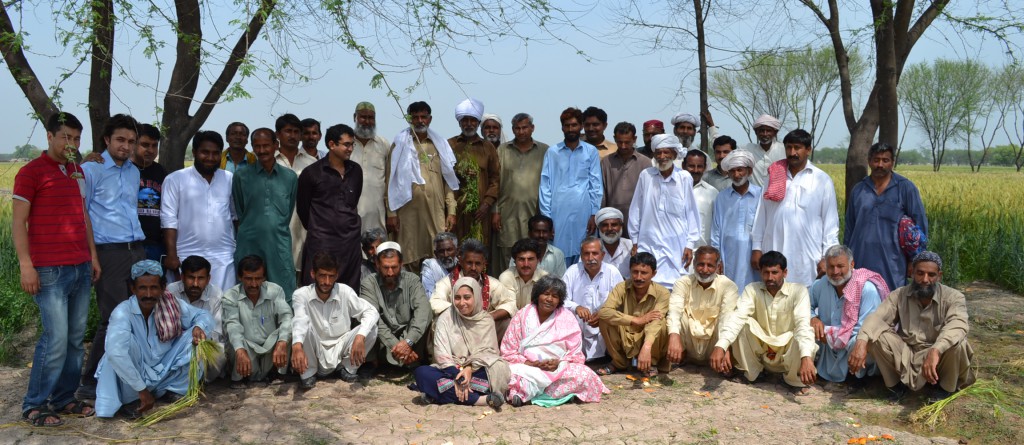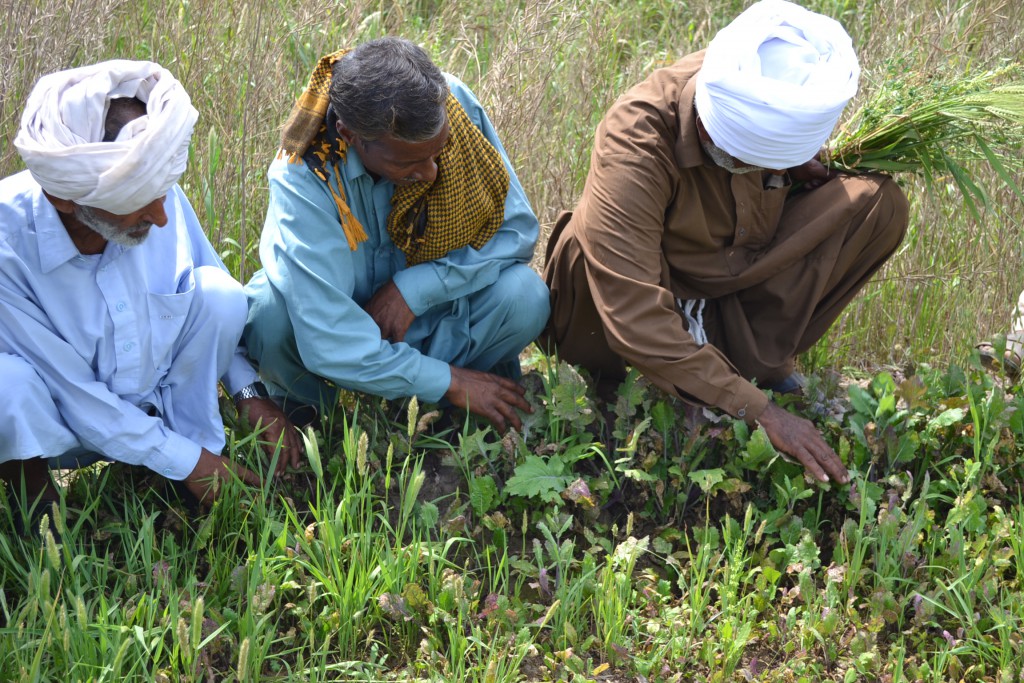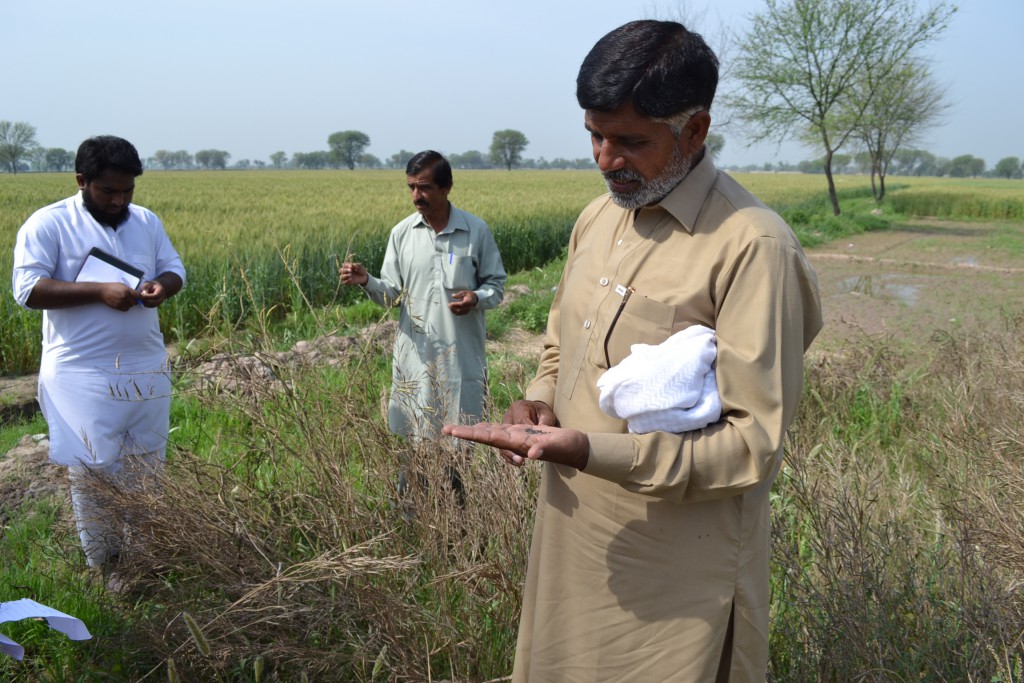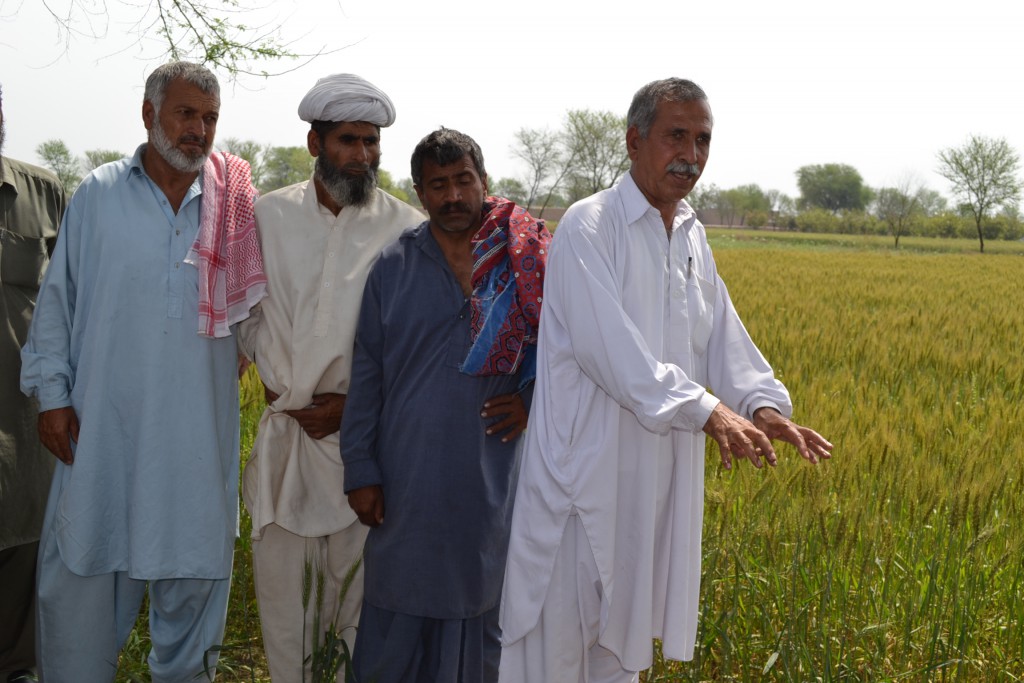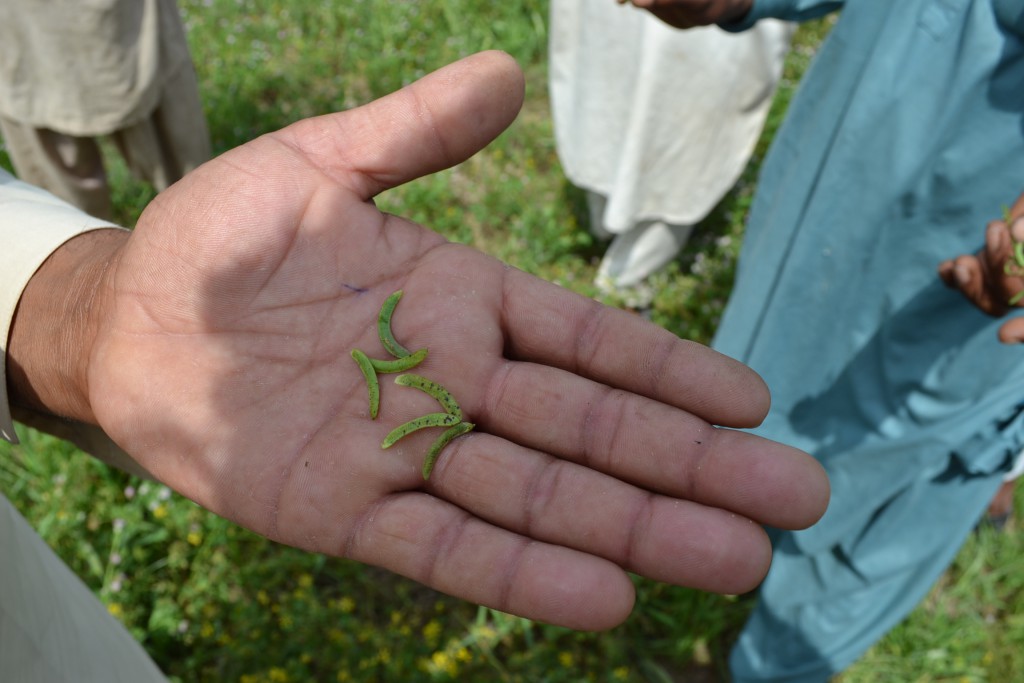Roots for Equity has initiated a trial farm basically for multiplication of indigenous seeds, especially for grains such wheat and rice. The context is of course sustainable agriculture. Land preparation is based on the use of natural fertilizers such as green composting and animal manure. In 2014 wheat sowing season, many varieties of seeds were sown, of which some were indigenous and others that were collected from farmers in Sindh, Punjab and Khyber Pakhtunkwa.
Now that wheat harvest is almost ready, an exposure visit of farmers from a farmers alliance group, namely Pakistan Kissan Mazdoor Tehreek was arranged. A total of 39 farmers from various districts of Sindh, Khyber Pakhtunkwa and Punjab visited the trial farm. The visit was followed with an extensive discussion on the trial farm, the methods being applied at the farm for soil enrichment, sowing methods, pest management and the quality of the seeds of the almost ready to be harvested wheat.
The visit to the farm and the discussion was a clear example of the rich knowledge and invaluable experience of farmers. The feedback on methods of biological control was in itself amazing. For example, Mohammad Aslam from Sahiwal told us that in order to control a particular pest, two people can stand on either side of the field holding a thread. As the thread is moved across the field, the pest (tilla) will fall on the ground, and then it will not be able to attack the seed again. Another simple mehtod was just watering the plants with water lightly; that will also get rid of the particular pest.
Another farmer, Pawan Kumar from Matli, Badin shared how to make a biological pesticide from jackery (gur) and neem leaves. A farmer from Lower Dir, Bakht Zareen gave pointers for judging efficacy of animal manure, meaning what was the best time for using it as fertilizer. According to him, one should check the manure for smell – if it smells bad don’t use it. Only once the manure has matured to the extent that it does not smell and it has a fine granulated appearance it is best for use.
There is no doubt that the knowledge held by farmers cannot be learned through any university teaching. Their knowledge is not only based on a life time of learning but also through the collective learning and practices of many generations.

